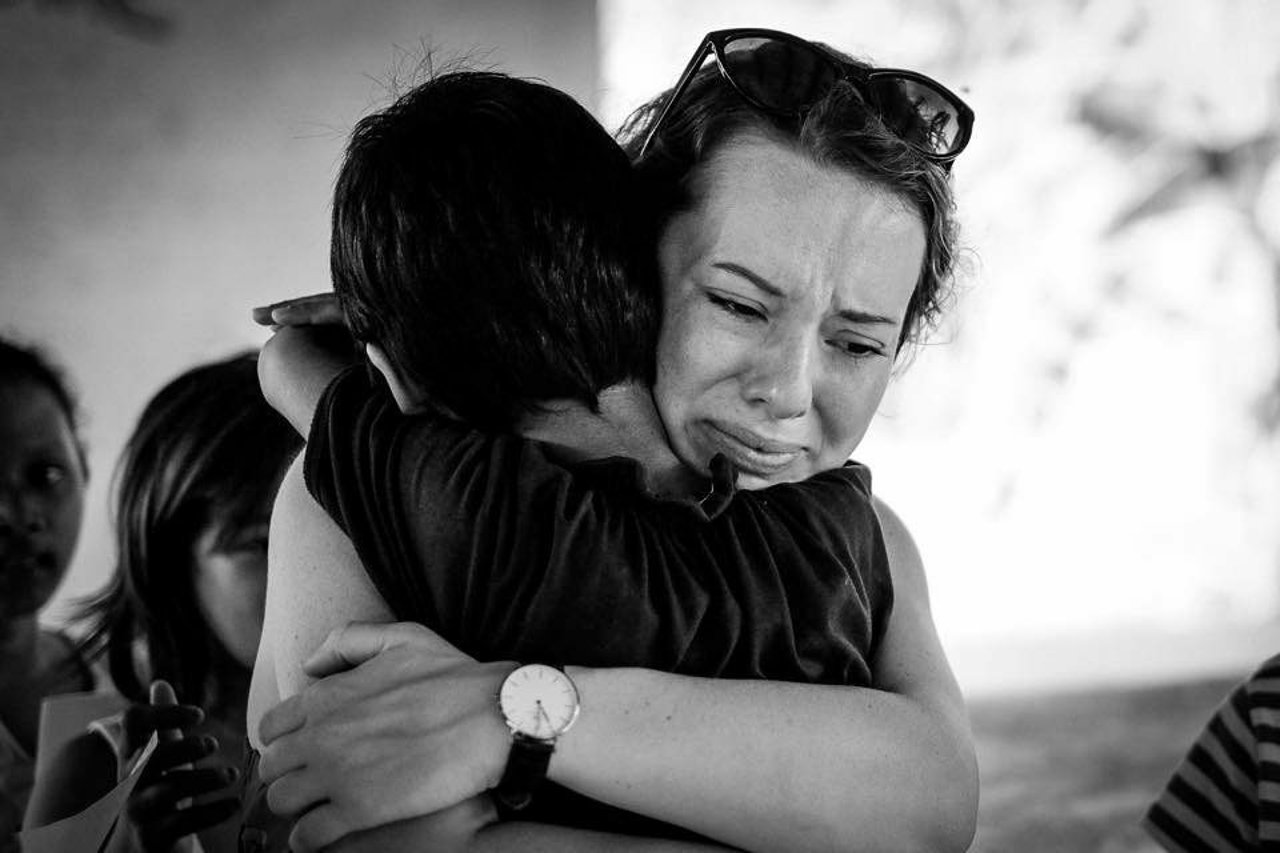
Beyond Borders: Interview with Ashley Boyes

At IJM, one thing we take incredible pride in is our interns and fellows program. Intelligent, passionate and adventurous men and women get the opportunity to join us on the grounds in the various areas of work to gain experience and lend their talents to our teams in the field.
We had the privilege of hearing the experience of Ashley Boyes, a law student who grew up with a passion for justice and international development and decided to dedicate a summer as a legal intern with IJM in the Philippines, using her skills to combat online sexual exploitation of children.
1) Tell us a little bit about yourself.
My name is Ashley Boyes and I was born and raised in London, ON. I completed my Bachelor of Political Science and Global Culture Studies at Western University in London and then I pursued a combined law degree and Master of International Affairs at the University of Ottawa and the Norman Patterson School of International Affairs. I’ve always been very passionate and interested in social justice issues and that’s what led me to intern with IJM.

2) Why are you passionate about issues of injustice?
I was raised in a Christian home by two pastors and because of this, in part, I was exposed to a variety of global issues from a very young age; be it poverty or world hunger or slavery, and all varying degrees of injustice. It quickly became apparent to me that I had a responsibility, particularly as a Christian, to do something about the injustices that I had become aware of. This awareness motivated me to pursue a career in law.
3) How did you learn about IJM?
Jamie McIntosh, who is a former Executive Director of IJM Canada, attended my home church. Over the years he did a number of presentations at my church and I quickly became aware of IJM’s work through his presentations and discussion.
4) Which IJM story is most inspiring to you?
I don’t think I have a particular IJM story that resonates, but after having worked in the field and having participated in a number of rescue operations, I think that every story is inspiring in its own unique way.
I also think that the national staff who work within IJM’s various field offices are incredibly inspiring. It’s those individuals who combat injustice day in and day out and have made it their lives’ work to advocate on behalf of the world’s most vulnerable. I think they are the true heroes. I know it’s not an easy decision to commit yourself completely to this type of work.
5) Tell us about your journey into the IJM Pampanga field office.
I was in law school at the time and was interested in ensuring that I continue pursuing social justice work as a career path. So, I was looking for opportunities where I could really get my feet wet – very practical, on-the-ground experience. There are lots of organizations that provide that kind of experience, but I was looking for a Christian organization. I was doing my research and I discovered that IJM had a variety of internships depending on your particular career focus – if you were pursuing law or social work or more administrative roles – you could do varying internships.
I decided to apply as a summer legal intern which lasted for 2-3 months. I interned in the summer of 2015, but ironically enough, I had applied the summer before and I hadn’t been accepted. I remember being really upset and confused, because I truly felt like I was qualified for the position, but for whatever reason, I didn’t get in. When I applied the following summer, I did.
It was kind of a blessing in disguise that I wasn’t accepted the summer of 2014 because I wouldn’t have been able to work with the Director of National Prosecution Development and Legal Intervention in Pampanga because he wasn’t there at the time and he and I got along famously. We had a really great working relationship and we still stay in touch to this day. I think it was very much a God thing that I didn’t get in when I originally applied.
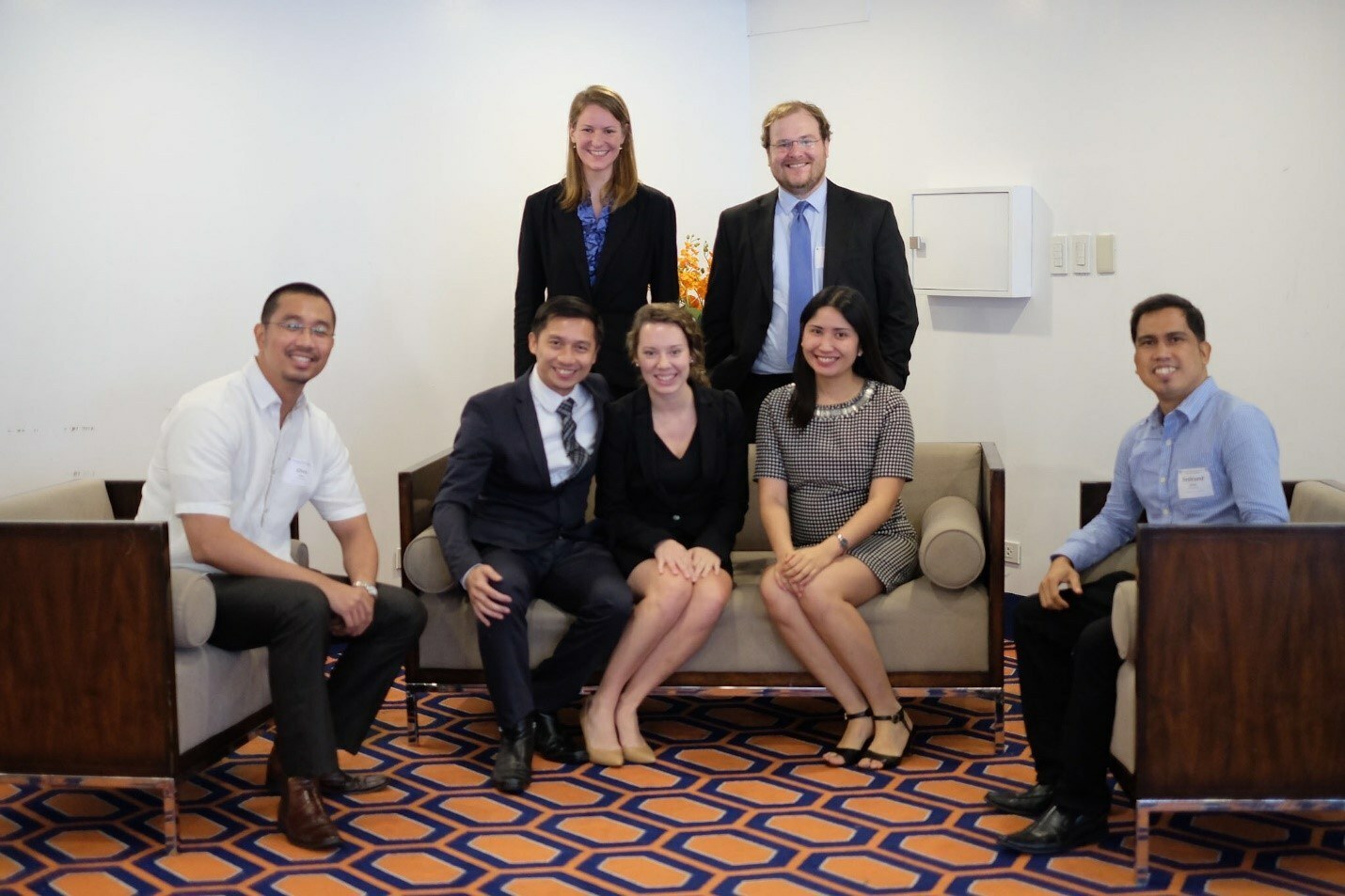
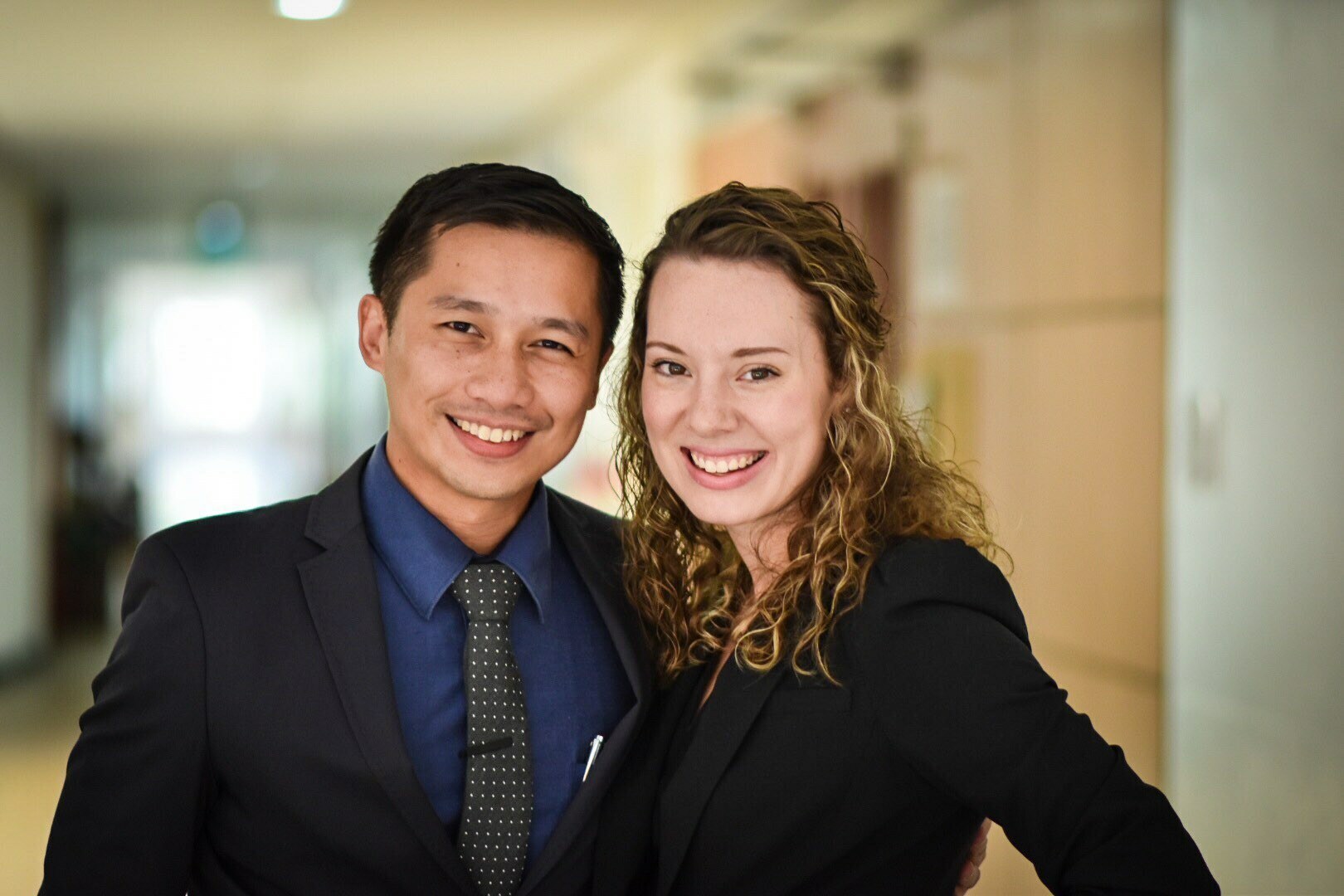
6) What have been some of the best moments or memories from your experience in the field?
My best memory centres around one story. When I was in Pampanga, I was able to participate in the rescue of a nine-year-old girl from cybersex trafficking. She was first trafficked by her mother at the age of two, and when she was just a child, her mother had taught her how to give sexual favours to foreign customers.
This was the first rescue operation that I was able to take part in while I was in the Philippines. What was remarkable was that up until that moment, she was the youngest girl that IJM Pampanga had ever rescued, and what was really amazing for me was that I was the only intern that participated in this rescue operation. So, I got a very hands-on, real experience. I spent many hours sitting through in-take interviews and drafting affidavits with her and the lawyer.
The happy part of the whole story is that when we rescued her, she also identified three other minors that were being sold for sex, and in the week after her rescue our investigators were able to help rescue another six girls. It was a really amazing experience.
7) What were some things that were challenging?
I think the most challenging thing for me to wrap my head around was the fact that girls we had rescued had been trafficked by their mothers. I had studied trafficking in school and I had done my own research and I felt like I was really prepared for what I was getting into; but to this day, it’s something that I really don’t understand. I know that it’s typically done as a result of poverty, but to me it’s just something that should never even be considered a practical option for a mom. That was a very difficult thing for me to deal with.
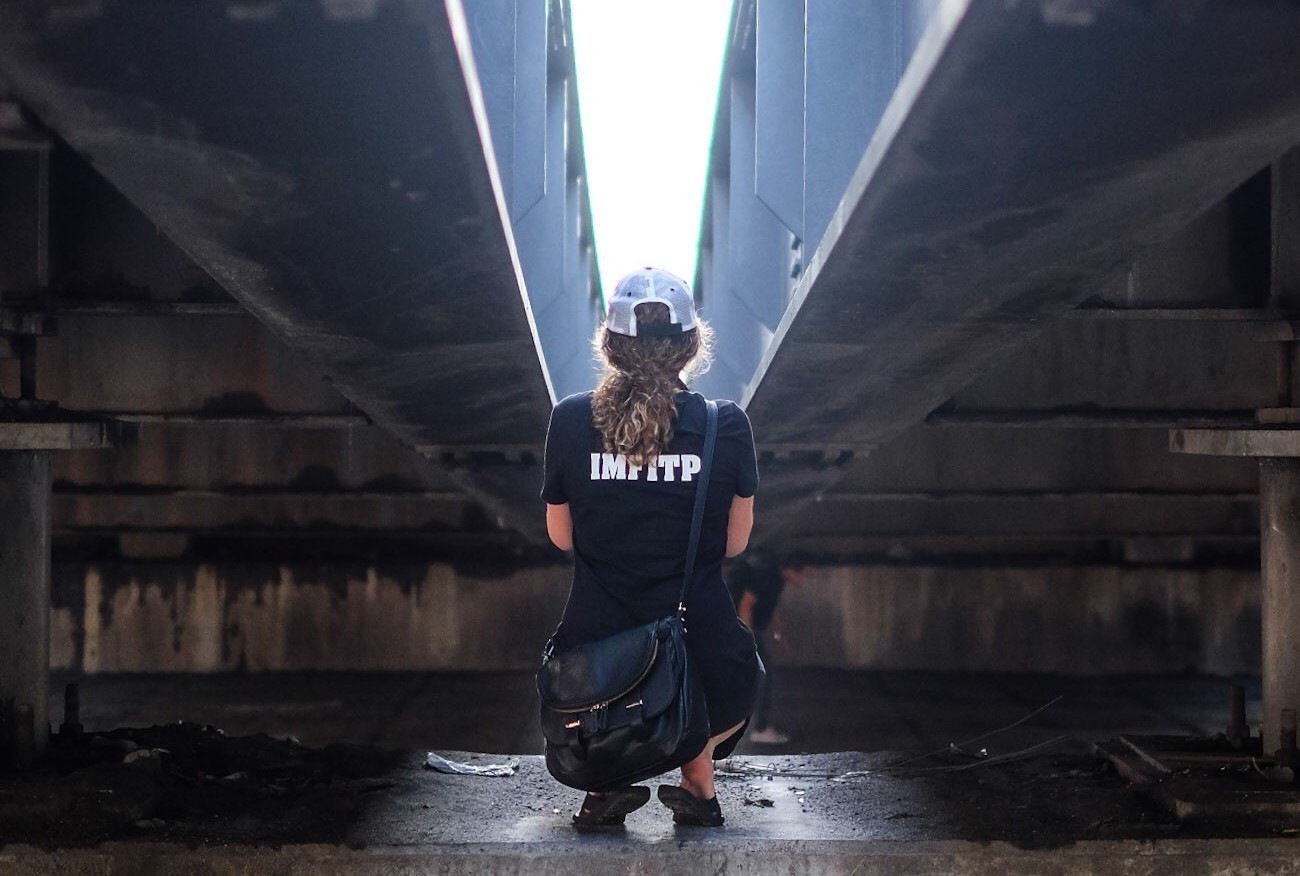
8) While you were in Pampanga, what did you miss most about home?
Two very practical things [laughs]. One was the food. I am not a picky eater by any means, but after two and a half months I definitely got tired of eating rice for breakfast, lunch and dinner. The second thing was hot showers. The house I was staying in in Pampanga didn’t have any hot water, and while the weather in the Philippines is extremely hot and humid, taking a freezing cold shower every morning is not a great way to wake up [laughs]. So those were the two things that were kind of difficult. Of course I missed my family, but I was only gone for two months, so it wasn’t an incredibly lengthy period of time; but I imagine if you went for a one-year fellowship, it would be difficult to be away from family for that long.
9) Now that you’re back home, what do you miss most about Pampanga?
Definitely the people. The staff at the Pampanga field office – whether it was the lawyers, social workers, investigators, administrative staff – they were all so loving and welcoming and I quickly felt like family working there.
It was also so refreshing to work with people who were so passionate about their work and their desire to rescue children and transformation justice systems.
I also miss the girls that I helped to rescue. Before I left the Philippines, I was able to visit the government shelter where the girls were placed and it was really difficult leaving them.
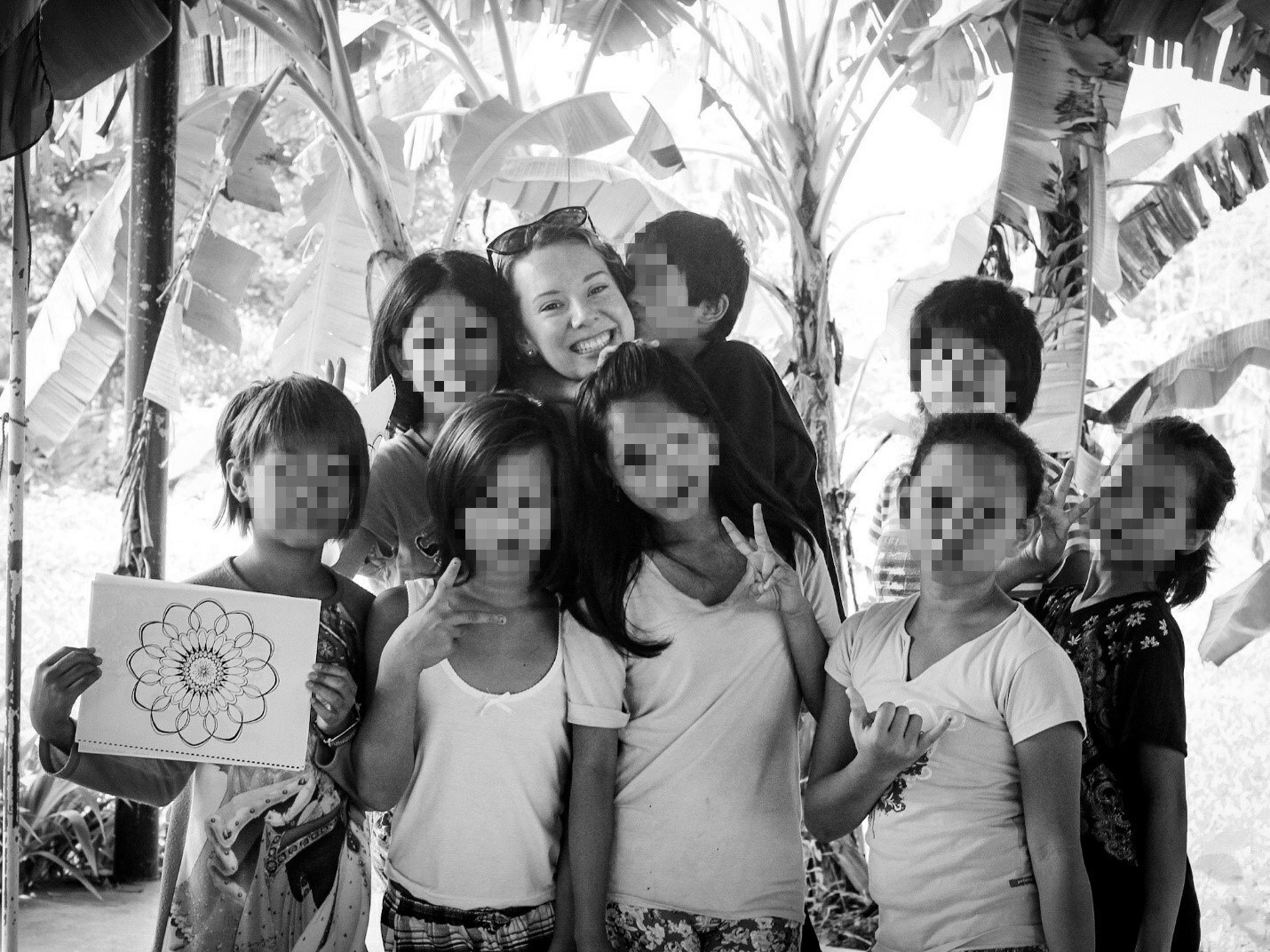

10) What was the biggest cultural hurdle you encountered in your time in Pampanga?
The biggest one I can think of is the language barrier; that was a really difficult thing to overcome. While I was interning, I was given the opportunity to participate in several of the rescue operations, and on multiple occasions, I was able to interact with survivors. I had to find creative ways to communicate with the girls – either through drawing or hand gestures or playing with them. It’s really difficult when you’re a lawyer and you’re trying to understand what they’ve gone through and get the legal information that you need with a very significant language barrier.
11) Now that you’re back, what’s next for you?
I’ve been back three years now, which is insane! I recently finished law school and was called to the bar of Ontario this past June. Since then I’ve started a new job as a litigation associate with a Bay Street firm in Toronto. My hope over the next few years is to gain some practical litigation and advocacy experience while pursuing social justice in other ways. But I would love the opportunity to one day work with IJM again – whether that’s sitting on a board, volunteering or even being an Executive Director in one of the field offices – who knows!
12) What is the #1 piece of advice you would give to anyone who is considering doing an internship or fellowship in an IJM field office?
I would say, do it [laughs]! Interning with IJM was by far one of the most rewarding, life-changing, eye-opening experiences of my career. Not only did I get to work on issues that I’m deeply passionate about, I also got the front-line, on-the-ground experience working alongside capable experts in their field. This type of experience can often be very difficult to find, and while unpaid, there is no monetary value that I could ever place on this experience. I would encourage anyone to apply.
Interested in exploring an internship or fellowship opportunity with IJM?
13) Who had the biggest impact on the person you’ve become?
That’s a really hard question. I’ve been very privileged to have some amazing mentors and teachers over the years as I’ve fumbled through trying to discover what I want my career to look like. But out of everyone, I think my parents have had the biggest impact on the person that I’ve become. My parents were the ones who established my Christian faith, encouraged me to speak for those who can’t speak for themselves and to this day, they continue to be my greatest support system.
14) What is the strangest food you’ve ever tried?
That’s really easy. During my first week in the Pampanga field office, it was customary for the interns to be encouraged, we’ll say, to try balut. Balut is a developing duck embryo that is boiled and then eaten from the shell. It originated from, and is commonly sold as, street food in the Philippines. I tried this with another intern within the first week that I arrived in the Philippines and it was by far the strangest thing that I’ve ever tried and it was absolutely disgusting [laughs]. It was horrible. But a lot of people really, really like it. I did meet some Filipinos who didn’t like it, but then there were others who ate it a couple times a week.
15) Anything else you’d like to share with our readers?
I’ve been advocating for IJM for many years and I really can’t place a higher value on the experience I’ve had with them. Their work and the field offices are amazing. While I was in the Philippines, I had the opportunity to go to the Cambodia field office for a week, and I was equally impressed with the amazing people that work there and the progress that they’re making in that country.
I would encourage anyone to really pursue these internship and fellowship opportunities.